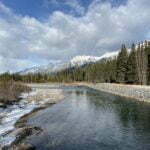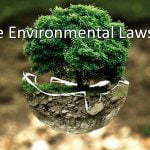Reliable and current public legal education and information (PLEI) resources can help self-represented people prevent and resolve legal problems in many situations. What is PLEI? PLEI stands for public legal education and information. While it may seem self-explanatory, one description of what is … [Read more...]
DIY Home Improvements: What’s the law?
Doing your own home renovations means understanding the legal requirements, such as permits, and the consequences of doing poor work. You own your own home and decide to do some renovations. You get a couple of quotes from local contractors and are in shock over what it all adds up to. You think to … [Read more...]
A Few Facts on … Equalization
Let's fact check a few common misconceptions on equalization and transfer payments. The terms “equalization” and “transfer payments” have been floating around in the news recently. The sheer volume of information thrown at us makes it difficult to figure out what is fact and what is … [Read more...]
Heading into Alberta’s Great Outdoors This Summer? Passes and permits to know about
It's your responsibility to know the rules before you head out to enjoy parks, camp, hunt or fish, and operate off-highway vehicles or boats. One positive thing to come out of COVID-19 is that more Albertans are exploring the beautiful outdoors of our province. Before venturing out though, you … [Read more...]
The Alberta Water Council and Consensus Decision-Making
The Alberta Water Council is interesting because of its role and how it makes decisions - by consensus only. This article is about two things. First it briefly describes the Alberta Water Council. Second, it talks about consensus decision-making – a way groups can work together toward a common goal … [Read more...]
The Crown’s Duty to Consult
20/20: Looking back over the last 20 years What is the most important environmental law case in Canada since the turn of the century? Twenty years is a long time in Canadian environmental law, given that this area of law has only existed as a ‘thing’ for a little more than twice that length of … [Read more...]
Water Regulation in Alberta: 5 Things You Need to Know
Water plus Earth, Wind and Fire. No … it’s not a day at the beach with a great band from Chicago. These are the names of the four classical elements, which in ancient times were thought to explain the nature of how the world worked. They are also the subjects of the next four LawNow Environmental … [Read more...]
Note from the Publisher
Hello LawNow readers, From all of us here at the Centre for Public Legal Education Alberta (CPLEA), we hope you had an enjoyable and relaxing summer! As many of you know, LawNow is published six times per year by CPLEA. This issue marks the start of LawNow’s forty-fourth year of … [Read more...]
How Are Environmental Laws Made?
Written environmental laws come in all different sizes and shapes. For example, the Canadian Environmental Protection Act, 1999 has 356 sections, six schedules and fifty-seven sets of regulations. Other environmental laws are only one page long. Big or small, they all have a few things in common. … [Read more...]
Important Concepts in Environmental Law – “Polluter Pays”
Your parents may have told you: “If you make a mess, you have to clean it up.” In a nutshell, that is the basis of the “polluter pays” principle. There is a lot wrapped up inside the simple principle of polluter pays. The roots of the principle come from economics rather than from … [Read more...]









